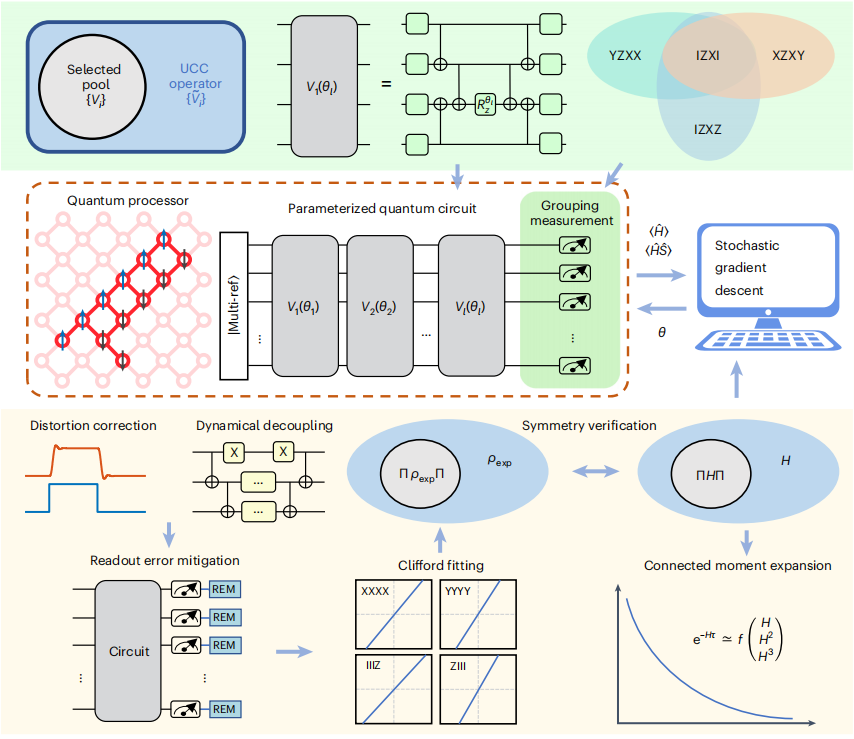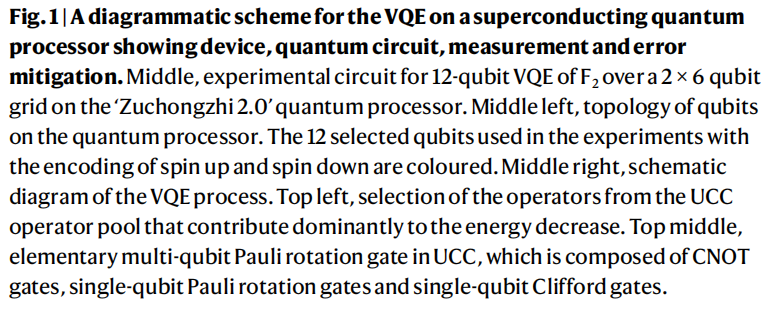Experimental quantum computational chemistry with optimized unitary coupled cluster ansatz
2024-06-11 18:56
1198 浏览
Quantum computational chemistry has emerged as a potential application of quantum computing. Hybrid quantum-classical computing methods, such as variational quantum eigensolvers, have been designed as promising solutions to quantum chemistry problems. Nonetheless, challenges due to theoretical complexity and experimental imperfections hinder progress in achieving reliable and accurate results. Experimental works for solving electronic structures are consequently still restricted to non-scalable or classically simulable ansatz or limited to a few qubits with large errors. Here, we address the critical challenges associated with solving molecular electronic structures using noisy quantum processors. Our protocol presents improvements in the circuit depth and running time, key metrics for chemistry simulation. Through systematic hardware enhancements and the integration of error-mitigation techniques, we overcome theoretical and experimental limitations and successfully scale up the implementation of variational quantum eigensolvers with an optimized unitary coupled cluster ansatz to 12 qubits. We produce high-precision results of the ground-state energy for molecules with error suppression by around two orders of magnitude. Our work demonstrates a feasible path towards a scalable solution to electronic structure calculation.




Article: https://www.nature.com/articles/s41567-024-02530-z
